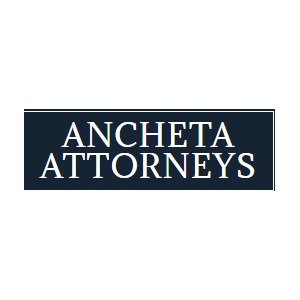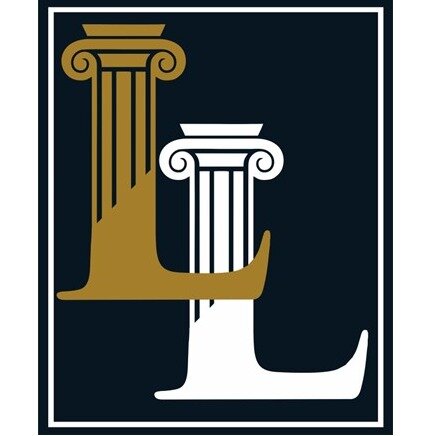Best Banking & Finance Lawyers in Manila
Share your needs with us, get contacted by law firms.
Free. Takes 2 min.
List of the best lawyers in Manila, Philippines
Philippines Banking & Finance Legal Questions answered by Lawyers
Browse our 2 legal questions about Banking & Finance in Philippines and read the lawyer answers, or ask your own questions for free.
- Is an OFW /expatriate in UAE with an existing bank loan can have a travel ban order in our country?
- I was an OFW in UAE and was included in a company mass termination. I haven't finished my bank loan and my computed gratuity was not enough to settle my loan so upon getting the email I exited UAE to another country & after a year went back to Phil.... Read more →
-
Lawyer answer by Islaw - Expert Lawyers
Hi, there may be a helpful answer of your querry. Unpaid personal loans or credit card debt (even if it's from a UAE bank) are considered civil cases, not criminal offenses under international law. Interpol is usually involved only for...
Read full answer - Is it really possible to collect a debt thru filing a case?
- I am planning a case against a friend who has multiple swipes on my credit card but failed to pay me. Initially, she was a good payer but something happened and she stopped paying me. The total number of swipes was a huge amount. I also have an investment in... Read more →
-
Lawyer answer by Starlion Legal
What country are you in? Yes, you can make a claim in court for this in a small claims court.
Read full answer
About Banking & Finance Law in Manila, Philippines
Banking & Finance law in Manila, Philippines, focuses on the regulation and legal framework governing financial institutions, transactions, and activities in the city. It encompasses various areas such as banking regulations, lending practices, securities, insurance, and other related matters.
Why You May Need a Lawyer
There are several situations where seeking legal advice from a professional in Banking & Finance law may be necessary:
- Starting a new banking or financial institution in Manila
- Obtaining necessary licenses and permits for financial operations
- Negotiating and drafting loan agreements or credit documents
- Dealing with debt collection or bankruptcy matters
- Resolving disputes with customers, clients, or other financial institutions
Local Laws Overview
In Manila, the key aspects of local laws that are particularly relevant to Banking & Finance include:
- Central Bank Regulations: The Bangko Sentral ng Pilipinas (BSP) regulates and supervises banking institutions, foreign exchange transactions, and monetary policies.
- Anti-Money Laundering: Laws and regulations are in place to prevent money laundering and terrorist financing activities.
- Securities and Exchange Commission: The SEC governs the issuance and trading of securities, including stocks and bonds.
- Consumer Protection Laws: Regulations are in place to safeguard the rights and interests of consumers in banking and financial transactions.
- Taxation Laws: Financial institutions need to comply with tax laws related to income tax, value-added tax, and other applicable taxes.
Frequently Asked Questions
Q: What is the minimum capital requirement for starting a bank in Manila?
A: The minimum capital requirement for starting a bank in Manila is set by the Bangko Sentral ng Pilipinas (BSP) and may vary depending on the type of bank. For example, the minimum capital for a commercial bank is currently set at PHP 3 billion.
Q: How can I protect my rights as a consumer in banking transactions?
A: As a consumer, you can protect your rights in banking transactions by familiarizing yourself with consumer protection laws, carefully reviewing the terms and conditions of any financial agreement, and seeking legal advice if you encounter any issues or disputes.
Q: What should I do if a financial institution is harassing me for debt collection?
A: If you are being harassed by a financial institution for debt collection, you can take several actions. Start by keeping a record of all communication and documenting any harassment. Contact a lawyer specializing in Banking & Finance law to seek legal advice on the best course of action, which may include negotiating with the institution or filing a complaint with the relevant authorities.
Q: What are the consequences of non-compliance with anti-money laundering regulations?
A: Non-compliance with anti-money laundering regulations can result in severe consequences, including fines, penalties, imprisonment, and reputational damage to the financial institution. It is crucial for institutions to have robust internal controls and processes to ensure compliance with these regulations.
Q: How can I verify the legitimacy and reliability of a financial institution in Manila?
A: Before engaging with a financial institution in Manila, it is essential to verify its legitimacy and reliability. You can do this by checking if the institution is duly licensed by the Bangko Sentral ng Pilipinas (BSP). Additionally, research the institution's reputation, review customer feedback, and consider seeking professional advice from a lawyer or financial advisor.
Additional Resources
If you are in need of legal advice or further information regarding Banking & Finance in Manila, the following resources can be helpful:
- Bangko Sentral ng Pilipinas (BSP) - Official website of the central bank of the Philippines, which provides information on banking regulations and policies. Visit: https://www.bsp.gov.ph
- Securities and Exchange Commission (SEC) - Official website of the SEC, where you can find information about securities regulations and investor protection. Visit: https://www.sec.gov.ph
- Integrated Bar of the Philippines (IBP) - The organization offers a directory of lawyers specializing in Banking & Finance law. Visit: https://www.ibp.ph
Next Steps
If you require legal assistance in the field of Banking & Finance in Manila, Philippines, the recommended next steps are:
- Identify the specific issue or area where you need legal advice.
- Research and shortlist lawyers specializing in Banking & Finance law.
- Contact the selected lawyers to schedule consultations.
- During the consultation, discuss your situation in detail and evaluate the lawyer's expertise and experience.
- Select and engage the lawyer who best meets your needs and budget.
- Work closely with your lawyer to address your legal concerns effectively.
Lawzana helps you find the best lawyers and law firms in Manila through a curated and pre-screened list of qualified legal professionals. Our platform offers rankings and detailed profiles of attorneys and law firms, allowing you to compare based on practice areas, including Banking & Finance, experience, and client feedback.
Each profile includes a description of the firm's areas of practice, client reviews, team members and partners, year of establishment, spoken languages, office locations, contact information, social media presence, and any published articles or resources. Most firms on our platform speak English and are experienced in both local and international legal matters.
Get a quote from top-rated law firms in Manila, Philippines — quickly, securely, and without unnecessary hassle.
Disclaimer:
The information provided on this page is for general informational purposes only and does not constitute legal advice. While we strive to ensure the accuracy and relevance of the content, legal information may change over time, and interpretations of the law can vary. You should always consult with a qualified legal professional for advice specific to your situation.
We disclaim all liability for actions taken or not taken based on the content of this page. If you believe any information is incorrect or outdated, please contact us, and we will review and update it where appropriate.
Browse banking & finance law firms by service in Manila, Philippines
Manila, Philippines Attorneys in related practice areas.

















